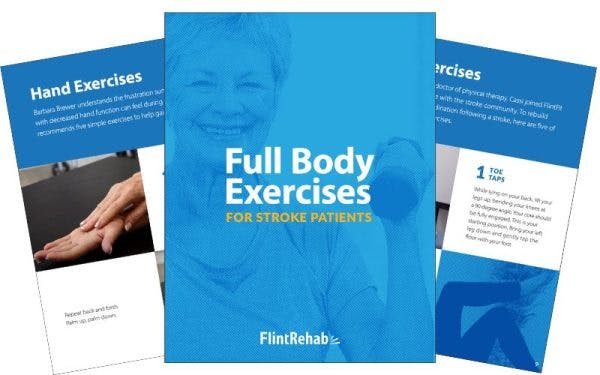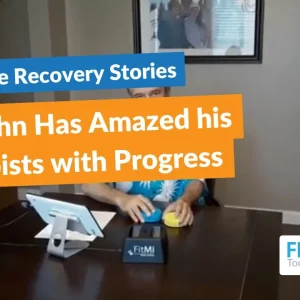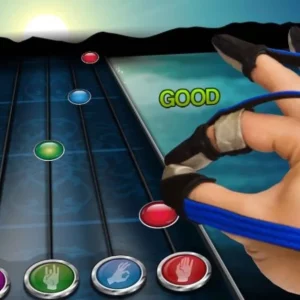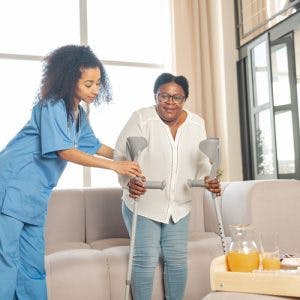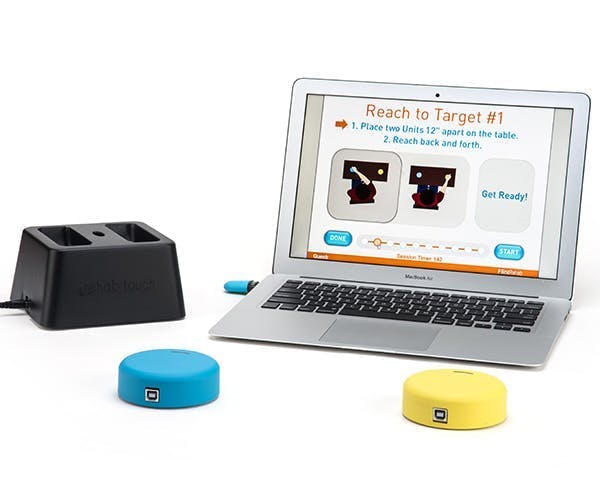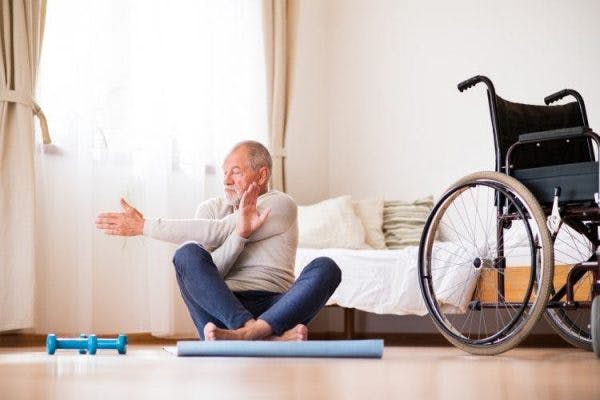Stroke recovery is possible at any age and any stage, including the chronic stage of stroke recovery. While there was once the idea that rehabilitation stopped at the 6-month mark, we now know this is inaccurate. Survivors can continue to make improvements well into the chronic phase of recovery, both physically and cognitively.
Recent research is finally starting to catch up to this idea and supports functional improvements well after this six-month mark. In truth, your brain is always capable of changing and healing at any age or stage of recovery. This growth is based on experiences, the consistent practice of rehabilitative exercises, and your brain’s resourcefulness.
To encourage you to continue pursuing recovery from chronic stroke, this article will review new research that supports late-stage improvement in function. Additionally, we will review different methods to boost your recovery and help you reach your own unique goals. Even if it’s been decades since you stopped pursuing rehab, it’s never too late to start again.
Your Brain Is Changing Based on Experiences
Studies have shown that your brain changes throughout your entire life. This is due to a process called neuroplasticity. Neuroplasticity is the mechanism that allows your brain to heal and create new pathways for cognitive and motor skills. While this is always present, it is an especially important concept for stroke recovery, even in the chronic stage.
After a stroke, survivors may experience a variety of different secondary effects depending on the area of the brain affected. For example, a survivor impacted by a stroke in the right hemisphere of the brain may experience left-sided paralysis, called left hemiplegia. While this can have a major impact on a survivor’s daily activities, recovery is possible after stroke through neuroplasticity.
Neuroplasticity allows for the rewiring of previously lost functions from affected areas of brain tissue to healthier, unaffected areas. This healing and growth of new connections is activated through repetitive practice. Whenever you practice something, your brain becomes engaged and adapts itself to improve its efficiency with that task.
Recover from Stroke Through Practice
Whenever you develop a new skill, such as learning a language or hobby, neuroplasticity is responsible. For example, London taxi drivers who have learned to navigate 25,000 streets have more brain cells growing in the part of their brain related to knowledge of maps. Similarly, medical students who have been studying for a medical exam have changes in their brains in the areas that control memory retrieval and learning.
These studies demonstrate how your brain changes and grows in related areas whenever you practice something. This same concept also applies to chronic stroke recovery. Thanks to neuroplasticity, stroke recovery is possible even months or years after the initial injury when you perform high repetition of rehab exercises.
Whether it has been two months or two decades since your stroke, practice can spark new changes in your brain whenever you put in the work. Practice is the essence of stroke recovery and can help restore both cognitive and physical functions. This includes functions like impaired memory or difficulty moving your arm or leg after stroke.
This is why cognitive rehabilitation exercises help with memory and why physical therapy exercises help with movement. However, these improvements require high repetitions, or massed practice, to notice changes in function. Whatever you practice – from talking to walking to remembering – is what you get better at.
Although stroke recovery is possible in the chronic stage, there are some factors that impact the rate of recovery. In the next section we will discuss these different factors that may slow progress for survivors with chronic stroke symptoms.
Age, Time, and Your Brain’s Ability to Change
As you get older, your brain’s ability to change slows down due to the natural aging process. This means it may require more practice to produce the same changes in the brain. However, your brain is still capable of changing for your entire life. In fact, a recent study showed that older adults displayed similar rates of learning when compared to younger adults.
Another factor that can impact chronic stroke recovery is the time since the initial stroke. Many survivors are told that the greatest gains will be made in the first 3-6 months of recovery. This is supported by substantial research and is due to a phenomenon called spontaneous recovery.
After a stroke, neuroplasticity is at its peak during these first months. As the brain works to heal and rewire lost functions, survivors will see the fastest improvements in functions like mobility, speech, and cognitive skills during this time. While recovery does not stop after this period, survivors often experience a plateau in progress or even occasional regressions farther into their recovery journey.
In addition to age and time, the severity of stroke symptoms, additional complications, and inactivity can impede stroke recovery. For example, the development of muscle and joint contractures after stroke can be difficult to overcome. Furthermore, inactivity and secondary effects like hemiparesis can lead to a decrease in strength and muscle mass, called muscle atrophy.
While these factors may slow progress, don’t short-change yourself by assuming that it’s “too late” to pick rehab back up or that it’s been “too long” since your stroke. To demonstrate this, one case study documented an individual who regained the use of his left hand 23 years after his initial stroke.
While late-stage improvements may not always be as dramatic as this example, even small improvements can have a big impact on daily function. In the next section, we will review different tools you can use to help long term stroke recovery and improve your abilities through dedicated practice of skills and exercises.
Tools for Chronic Stroke Recovery
The early stages of stroke rehabilitation focus on intense therapy, especially when survivors are in the inpatient hospital setting. However, after discharge it can be difficult for survivors to stay consistent with their rehab exercises.
We know that exercise after stroke is vital for increasing strength, improving the performance of daily activities, and even preventing a second stroke. To help you restart your pursuit of recovery, here are some rehabilitation methods you can explore:
- Passive rehab exercises: Passive exercise refers to exercise that is performed without active muscle contraction. This means your affected limb is taken through its full range of motion with assistance from a caregiver, therapist, or your unaffected limb.
- Active rehab exercises: This refers to exercise performed using active muscle contraction, meaning your muscles are doing the work themselves. This can include leg exercises or arm exercises and can be adapted to any ability level to increase strength and motor skills.
- Mental practice: Just visualizing yourself performing an exercise or skill can activate neuroplasticity and help with motor learning. This is ideal for survivors with greater weakness or paralysis, as mental practice can be performed independently. This method is even more effective when combined with passive exercise.
- Aerobic activity: Since many survivors experience physical impairments due to stroke, aerobic exercise can seem difficult to achieve. However, daily aerobic exercise like walking, arm or leg cycling, or swimming can boost recovery and lead to significant improvements in both physical and mental health. Find a form of aerobic exercise that is accessible to you to increase your cardiovascular fitness.
- Cognitive exercises: Practicing cognitive exercises can improve your memory, critical thinking, and problem-solving skills, even in chronic stages of stroke recovery.
Talk with your physical, occupational, and speech therapists to help you create an exercise program that pushes you to reach your goals. The most valuable piece of the rehab puzzle is consistency, so make these exercises a daily habit. Stroke recovery is always possible and it’s never too late to get started.
A Stroke Survivor’s Example of Hope
One of our rehab tools, MusicGlove, is a hand therapy device that helps improve hand function by encouraging high repetition of therapy exercises. To demonstrate how stroke recovery is possible through neuroplasticity, we had a patient try the device 24 years post-stroke.
While our participant wasn’t sure if it could help her so “late in the game,” she wanted to try MusicGlove anyway. Even after two and a half decades post-stroke, she improved her hand function significantly through repetitive practice of these exercises.
She put in the work and her brain responded through the process of neuroplasticity. While not everyone can achieve “significant” improvements decades after stroke, we hope this stroke survivor story proves that there’s always hope for chronic stroke recovery.
A Summary of Chronic Stroke Recovery
The fastest improvements in function generally take place in the first 3-6 months after stroke. However, growing research supports the fact that gains can still be made in the chronic stage of stroke recovery. Your brain changes based on what you practice, and these changes are possible at any age and any stage post-stroke.
Positive changes occur through neuroplasticity, which is your brain’s ability to strengthen and rewire neural connections. You can encourage this rewiring through methods like passive and active exercises, aerobic activity, cognitive exercises, and even mental practice. Talk to your therapy team to create a program you can stay consistent with. If you took a break from rehab, you can pick things back up and see results, even decades after stroke.
We hope this article has reassured you that stroke recovery is possible, even in the chronic stage of rehabilitation. Keep working toward your goals and find support from those around you. If you want an extra dose of motivation, check out our book Healing & Happiness After Stroke for encouragement as you navigate recovery.


